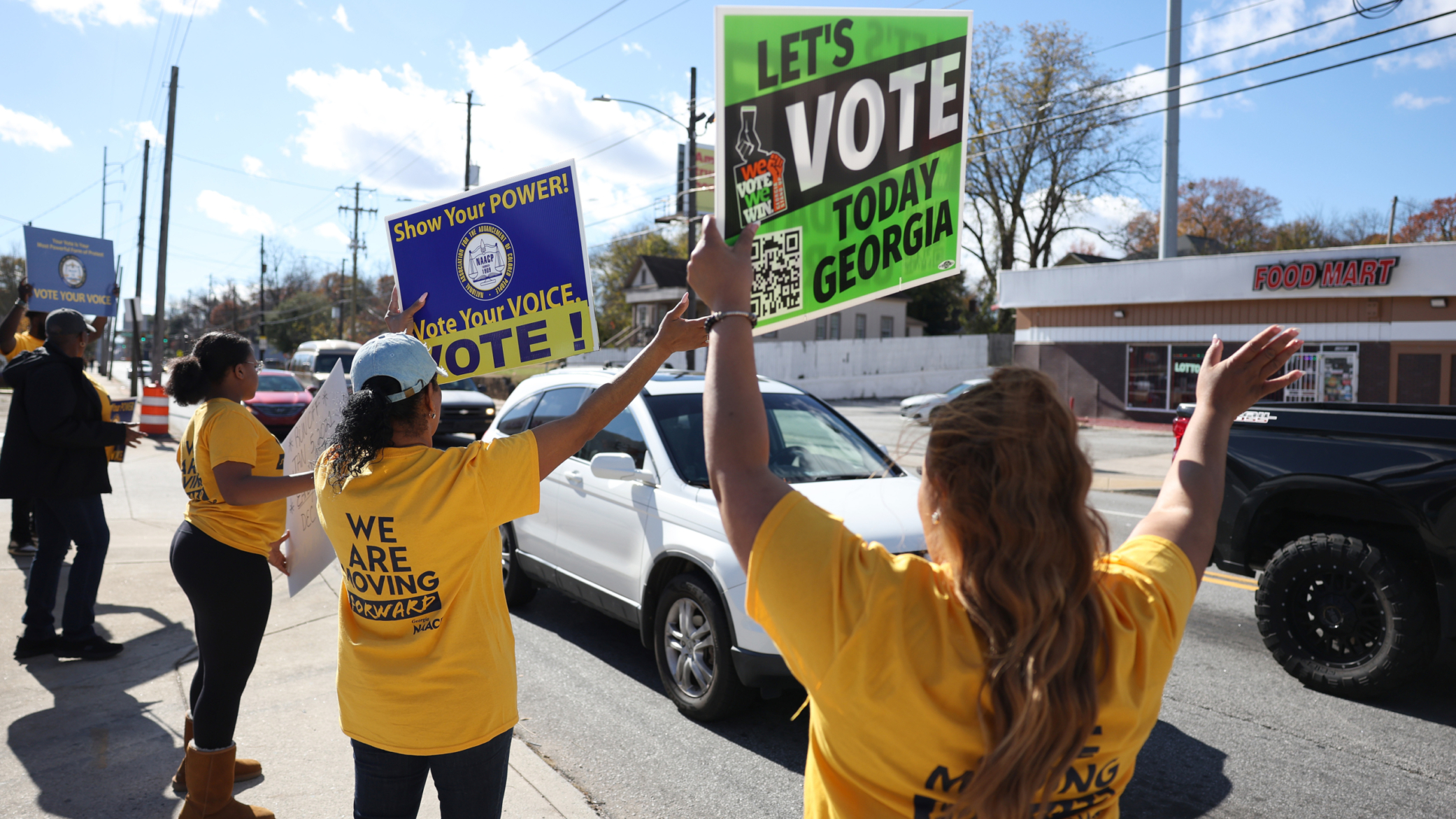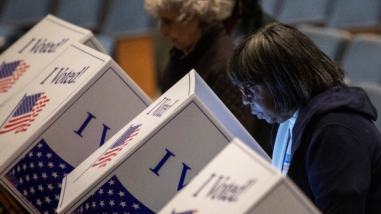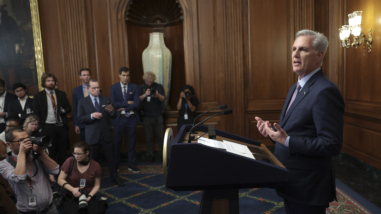Guideposts toward a functioning, fair U.S. democracy

Rebuilding our politics requires an invitation to all Americans to be a part of a democracy that protects the freedoms of all Americans, not only Americans that look like them. That invitation may be despised or ignored. It may be welcomed. But unless Americans are offered a way out of the polarization — out of the calcification — of our politics, the experiment that is U.S. democracy will fail.
The Hewlett Foundation’s U.S. Democracy Program is committed to renewing our nation’s democracy in a way that invites all Americans to participate. To pave the way for a future where we can imagine what our democracy could and should become, we support an ecosystem of leaders, governing institutions, and nonpartisan organizations that choose freedom over control, stability over chaos, inclusivity over exclusion. Our grantees’ innovative approaches to reducing polarization reach across the political spectrum to build trust in elections and strengthen national governing institutions.
Members of this ecosystem need not agree on the full range of public policy issues taken up by lawmakers. They need only agree that their political foe is not an existential threat to their well-being. This is more than strengthening a political “center.” It is expanding that center, so their respective flanks are brought into a larger alliance of voters seeking solutions for the common good.
Fundamental to this broader understanding of democracy is establishing new norms and conditions that build trust. This is critical because an increasingly diverse electorate, living in a fluctuating economy across the vast geographic expanse that is the U.S., will not thrive within the democratic norms of yesteryear. In the long term, we need to think creatively about the role and structure of political parties, voters’ relationship to elected representatives and governing institutions, structural reforms to our elections systems, and how technology shapes the systems that impact our lives.
Yet, the short-term needs of our democracy cannot be ignored. And Hewlett’s grantmaking is designed to address both.
In order to ensure our Trustworthy Elections and National Governing Institutions strategies build public trust in our democracy in the near term, we seek to build and strengthen discrete ecosystems, craft and amplify strategic narratives, and draw concrete linkages between people’s lives and governing institutions. The following guideposts will chart the purpose and direction of our grantmaking, convenings, and communications:
- Does the work build or strengthen ecosystems of center-right and center-left organizations, veterans, conservative and moderate faith communities, businesses, or rural regions that choose stability over chaos, freedom over control, inclusivity over exclusion?
- Is there a clear narrative that engages these ecosystems? Not a communications function that shares the results of the work; rather, a capacity to help specific constituencies understand the fundamental values of U.S. democracy — and why they must act in partnership with Americans across the political spectrum to protect those values.
- Does the effort foster or strengthen the connection between people’s lives and the effectiveness of governing institutions? Closing the gap between participation in elections and the real-life consequences of public programs and services is core to increasing trust in democracy.
The guideposts are not intended as a strategic shift in our approach. Rather — given the importance of the coming years and our responsibility to deploy limited resources strategically — we want to focus on specific opportunities that build a bigger coalition of Americans who see that what makes the U.S. special is that the norms and conditions underpinning our democracy allow for disagreement without our citizenry resorting to violence.
Ultimately, we must build an alliance of leaders and organizations that challenges our assumptions, that redefines what it means to be a stakeholder in our democracy. Whether that is a mother who wants to make sure her daughter not only has a bright future, but also understands the facts of our past; a CEO who wants to create jobs within a nation of laws where their economic interests are not subject to the political whims of the ruling party; or a pastor who wants to make sure his congregation can pursue their religious beliefs.
We all have a stake in a functioning, fair democracy.



